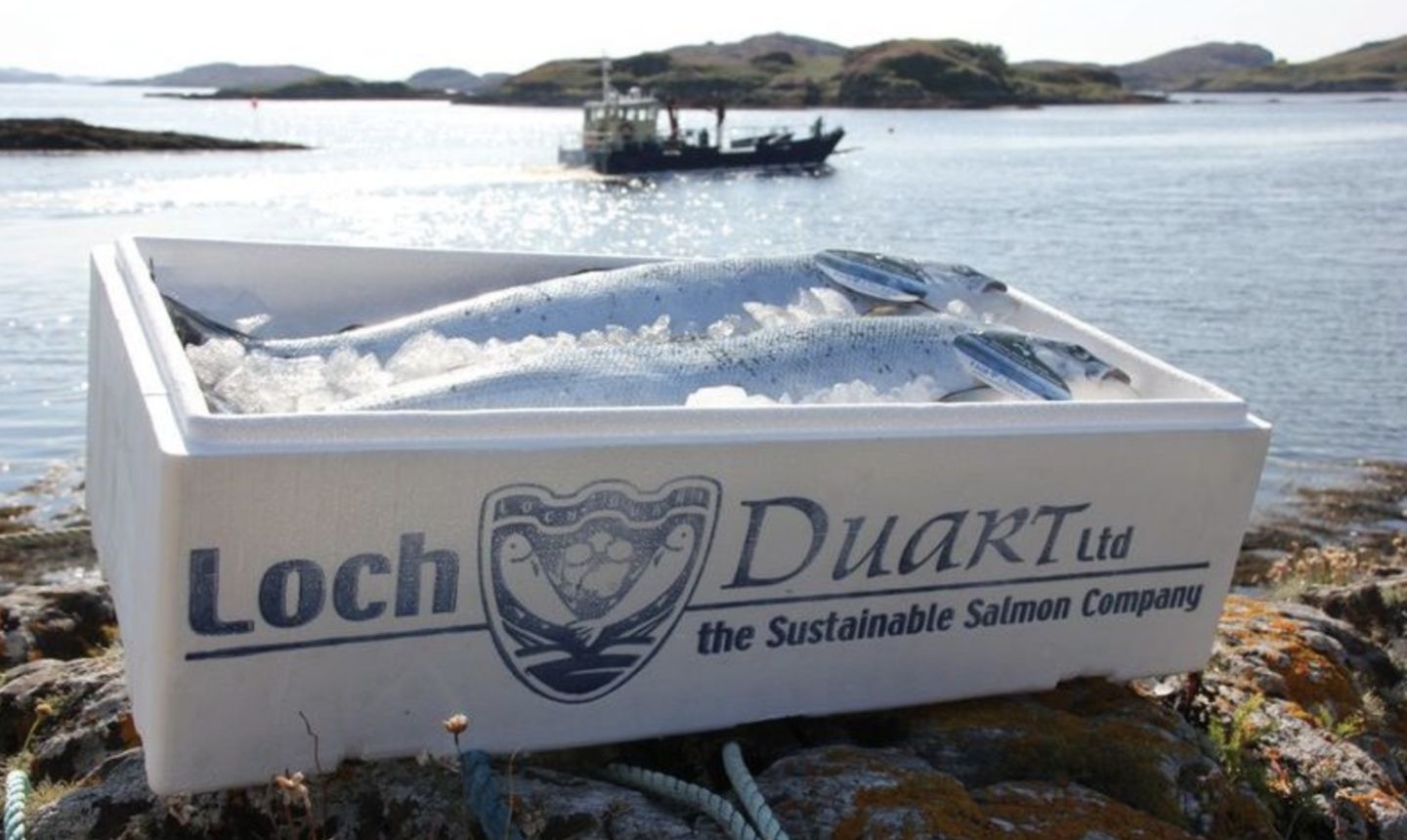A leading Scottish salmon farming company has stopped branding its business as “sustainable”, according to the UK advertising watchdog.
Loch Duart, which farms fish in Sutherland and the Outer Hebrides, used to market itself as “the sustainable salmon company”. But it has told the Advertising Standards Authority (ASA) that it is no longer using the label.
Campaigners are now calling on other fish farming firms and public agencies to abandon claims of sustainability for the industry. Pollution, toxic chemicals and the risks to wild fish make fish farming “inherently unsustainable”, they say.
Claims and counter-claims on sustainability have often characterised environmental conflicts. The concept of “sustainable development” was defined in a ground-breaking report for the United Nations by Gro Harlem Brundtland in 1987 called Our Common Future.
“Sustainable development is development that meets the needs of the present without compromising the ability of future generations to meet their own needs,” it said.
In the decades since growing numbers of businesses have sought to be seen as sustainable in the hope it would win them more custom. Along with other salmon farming companies, Loch Duart has promoted itself as sustainable.
The company’s logo on leaflets, signs and packaging said “the sustainable salmon company”. On 5 April its website still highlighted the company’s “sustainable approach” and how it has “sustainability at the heart of our business”.
In February an anti-fish-farming blogger, Fishy Business, complained to the ASA about an image on Loch Duart’s website describing the company as sustainable. The complaint cited evidence suggesting that this was inaccurate because of the environmental damage caused by salmon farms.
In response the ASA said the complaint was “valid” and asked Loch Duart to make changes. “The advertiser explained that they had stopped using the term “sustainable” but that this image had not been removed,” said ASA’s complaints executive, Celia Howarth.
“They have now provided their assurance they will change this image to ensure the wording is removed.”
Because Loch Duart promised to stop claiming to be sustainable, the ASA decided to close the case without launching a formal investigation. Loch Duart was listed by the ASA on 3 April as a complaint that had been “informally resolved”.
According to the Fishy Business blogger, who requested not to be named, this is the first time that the ASA has examined whether fish farming is sustainable. “This should serve as a shot across the bows of other fish farm firms,” he told The Ferret.
“Claiming that their product is something it is not is misleading the public and consumers.”
The blogger argued that a high proportion of the food for farmed fish was from finite and depleting resources around the world. “Factor in the massive, almost unbelievable, percentages of mortalities found in Scottish salmon farms and that alone points to an unsustainable practice,” he said.
“We have a rising volume of hydrogen peroxide use, rising disease outbreaks and increasing spend on sea lice management. None of this can be said to be sustainable in the slightest.”
We threw away 10 million dead fish, says salmon farming industry
Don Staniford, from Scottish Salmon Watch, described sustainable salmon farming as an oxymoron. “By definition the farming of carnivores such as salmon is inherently unsustainable,” he said.
“Sustainable is a foreign country to any industry which drains our global oceans of wild fish, pollutes the sea floor, is dependent upon toxic chemicals and which discharges untreated sewage effluent.”
The wild fish group, Salmon and Trout Conservation Scotland, pointed out that Holyrood’s rural economy committee had recently concluded that “urgent and meaningful action” was needed to address “regulatory deficiencies as well as fish health and environmental issues” in Scottish salmon farming.
“It is hardly surprising that the ASA has decided that Loch Duart’s claims to be sustainable needed addressing,” said the conservation group’s solicitor, Guy Linley-Adams.
“The truth is that salmon farming in open cages is high-chemical input, high-waste output, intensive factory farming at sea. The best way to think of these farms is that they are like intensive chicken units, but floating upside down in a sea loch.”
Loch Duart confirmed that it was dropping the word sustainable from its marketing. “We are aware of the ASA’s informal conclusions on this issue,” said the company’s managing director, Alban Denton.
“Our current marketing material doesn’t use the term sustainable although we reserve the right to do so in the future. We are currently in the process of replacing any out of date collateral to reflect our current marketing approach.”
The Scottish Salmon Producers Organisation, which represents the industry, stressed the economic benefits of fish farms. “The Scottish salmon farming sector is committed to long-term sustainability – which by definition is a combination of its economic, social and environmental impacts,” said the organisation’s chief executive, Julie Hesketh-Laird.
“The sector is working hard all the time to improve our understanding of the impacts and benefits so we can focus investment in the right areas. Scottish Salmon is recognised for its growing economic contribution to Scotland and the UK in terms of company investment, employment and support for community initiatives.”
She added: “Scottish farmed salmon is a high quality, healthy food, high in Omega 3 and with one of the lowest carbon impacts of any farmed protein source, recognised as having good fish welfare standards by the UK’s leading welfare experts, the Royal Society for the Prevention of Cruelty to Animals. Performance is reported publicly and regularly.”
Letter on Loch Duart from Advertising Standards Authority
Letter From ASA on Loch Duart (Text)
Photos thanks to Loch Duart and Scottish Salmon Watch.














